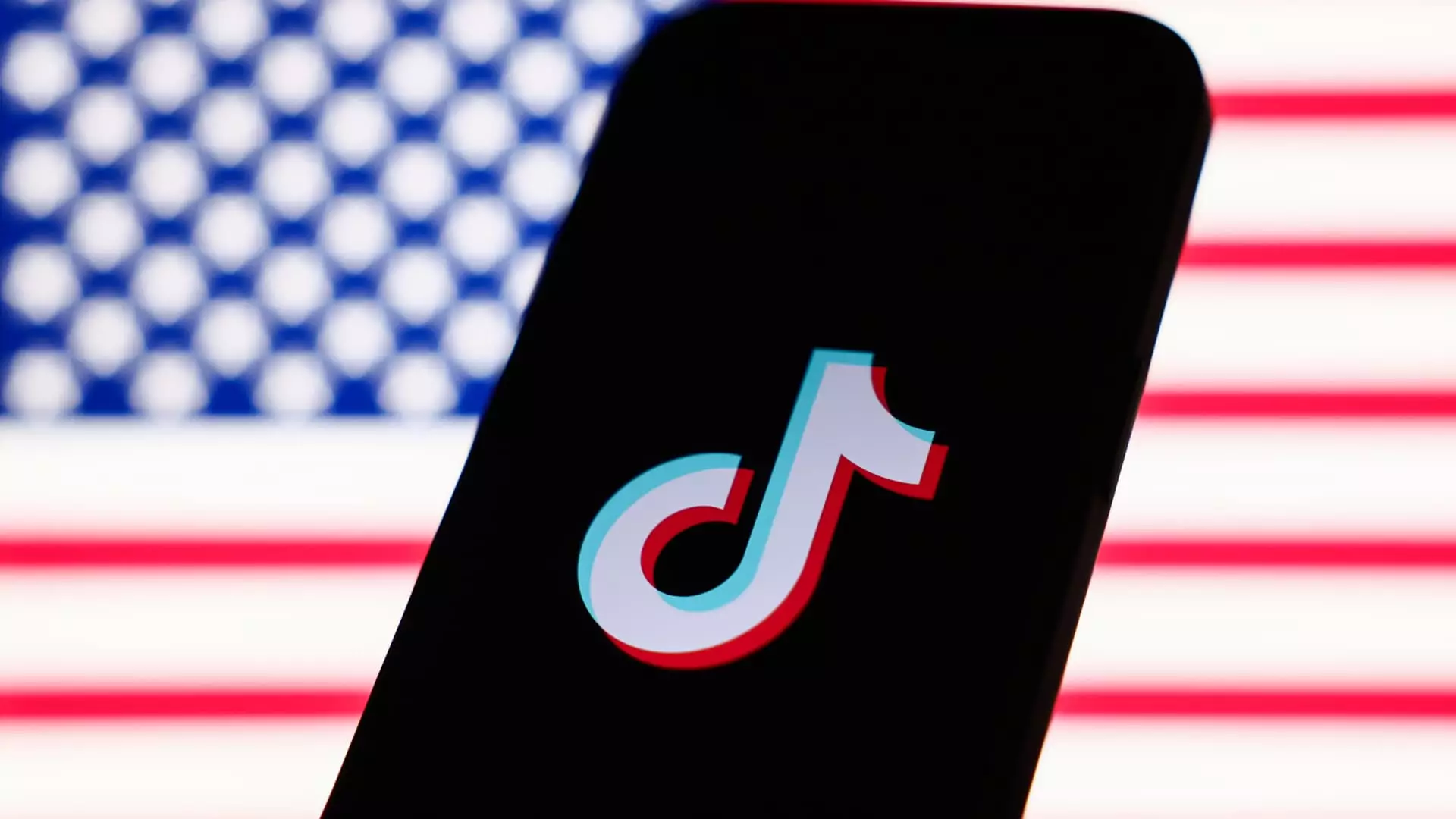The fate of TikTok in the United States has become a pressing concern for tech moguls, policymakers, and millions of users alike. As the platform faces challenges from a potential Supreme Court ruling and ongoing geopolitical tensions, the prospect of a sale has created a ripple effect across the business landscape. Would-be buyers are encouraged to prepare for significant financial commitments, with valuations of TikTok’s U.S. operations ranging as high as $50 billion. This potential transaction offers a fascinating glimpse into the intersection of technology, governance, and consumer behavior.
Recent estimates surrounding TikTok’s U.S. operations reveal a tumultuous valuation journey. Various reports have suggested numbers ranging from $30 billion to $50 billion, showcasing a significant divergence that speaks to the complexities involved. Angelo Zino, Senior Vice President at CFRA Research, previously projected a staggering valuation of over $60 billion earlier this year, a figure that has since been revised downward due to the increasing scrutiny by regulators and market fluctuations. This volatility reflects the app’s precarious position amid fears over data privacy and national security—concerns that have profoundly shaped its worth in the eyes of investors.
The crux of the situation lies not solely in user numbers, although TikTok’s 115 million monthly users in the U.S. establish it as a robust competitor against platforms like Instagram and Snapchat. Rather, the convoluted nature of ownership, particularly the algorithms that underpin TikTok’s success, plays a critical role in determining its market value. Many potential acquirers would face significant challenges since the Chinese government may restrict the transfer of these algorithms, which are considered a vital asset and central to the national security debate surrounding the app.
The task of finding a buyer capable of absorbing TikTok’s highly scrutinized U.S. operations is fraught with obstacles. Analysts believe that any acquisition would invite intense regulatory oversight focused on data privacy concerns, which may deter prospective bidders. This scrutiny could severely hinder potential buyers’ ability to innovate or expand TikTok’s advertising capabilities, key factors necessary for maximizing profitability. The difficulty of navigating regulatory landscapes is evident not only for tech giants like Elon Musk, whose potential bid raises eyebrows but also for other consortiums exploring acquisition options.
Recent efforts have been led by notable business figures like Frank McCourt and Kevin O’Leary, who have expressed willingness to make a competitive bid yet indicated a preference for a deal that does not involve the contentious algorithms. This approach would likely spare them from heightened regulatory scrutiny, allowing for a smoother transaction. The disparity between O’Leary’s bid and that of a potential Musk acquisition highlights how different strategies could cater to the evolving regulatory environment without compromising operational potential.
The outcome of this potential sale carries significant implications not just for TikTok but for the broader social media landscape. If a U.S. acquirer can secure TikTok’s operations, it may catalyze new innovations that reshape the platform’s content strategies and user engagement. However, if the app is forced into a sale under pressure from the government, the transaction could serve as a precedent that signals the U.S. willingness to interfere with international tech companies. This could inspire similar legislative actions against other foreign-owned digital platforms, influencing the global tech ecosystem.
Moreover, the fate of TikTok could reconfigure the competitive dynamics of the social media industry. Should a business consortium successfully acquire TikTok, they might challenge existing giants, providing renewed opportunities for creativity and competition. Conversely, a ban or forced sale without clear leadership may result in lost consumer trust and market share, benefiting rival platforms eager to attract disillusioned TikTok users.
TikTok’s potential sale or ban will be pivotal in determining not just its own future, but also the future of digital commerce and user interaction in the U.S. As valuations fluctuate and influential figures step forward, stakeholders must reckon with the intertwining issues of data security, user privacy, and innovation viability. The outcome is uncertain, but it is undoubtedly a defining moment for the social media landscape as we know it.

Leave a Reply